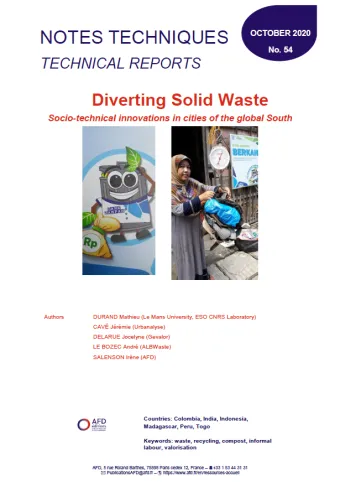Share the page
Diverting Solid Waste
Published on

This work takes as its starting point the findings of local authorities in the global South: as and when they are required to shut down old disposal sites and invest in costly sanitary landfills, cities are taking a fresh look at the role of waste avoidance ensured by various recycling systems. In fact, these systems divert part of the streams to be managed, reduce the fill rate at landfill sites, limit wasted resources and provide jobs for the poorest. Yet, reconciling the growth of these waste valorisation processes with public waste management services raises social, economic, institutional and technical challenges that need to be precisely characterised. This study aims to analyse these challenges from a technical, institutional and financial viewpoint in six cities in the global South: Lima (Peru), Bogotá (Colombia), Lomé (Togo), Antananarivo (Madagascar), Delhi (India) and Surabaya (Indonesia).
Useful Information
-
Authors
-
Mathieu DURAND Jérémie CAVÉ Jocelyne DELARUE André LE BOZEC, Irène SALENSON
-
Coordinators
-
Edition
-
54
-
Number of pages
-
184
-
ISSN
-
2492-2838
-
Collection
-
Technical Reports
